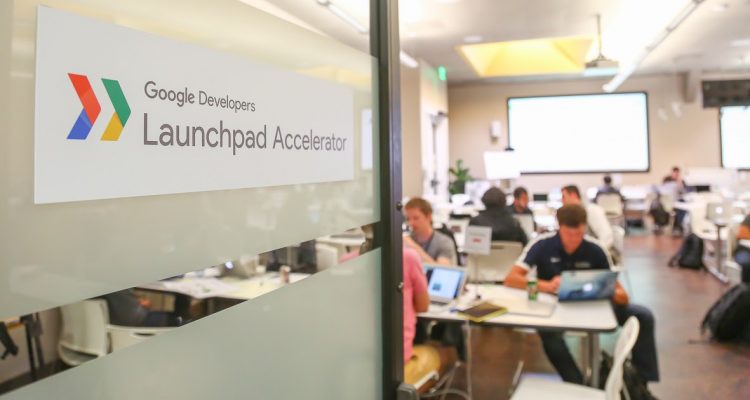Google today announced the launch of its second Launchpad Accelerator Africa class as part of its ongoing efforts to support entrepreneurship on the continent.
The accelerator, which is housed in Lagos, Nigeria, has already demonstrated its value. The first Launchpad Accelerator Africa class saw 12 startups graduate, with more than 20 teams from Google and 40 mentors from nine countries supporting them. The startups have directly created 132 jobs and, between them, have raised over US$7 million in funding. Their products are being used by approximately 4.5 million people.
“The growth of entrepreneurship in Africa is critical to the survival of our continent,” says Fola Olatunji-David, Head of Startup Success and Services, Launchpad Accelerator Africa. “We’re currently as a region creating about three million jobs per year, while more than 11 million job seekers are entering the market. Google believes that empowering entrepreneurs and startups is essential to drive employment growth, and enable both economic and social development on the continent.”
For the second class Google extended applications to an additional 11 countries, competition for spots was even fiercer than the first time around. Google received more than 250 applications, including from graduates of previous Launchpad programmes, with others referred to the programme by Launchpad mentors.
The 11 finalists from six countries, in alphabetical order, are:
- AppZone (Nigeria): AppZone builds Software as a service (SaaS) fintech software ecosystems for digital banks, allowing them to reduce operational costs while improving service delivery.
- Chalkboard Education (Ghana): Allows educational institutions to make their curricula available via mobile devices (USSD, SMS, and internet). It also lets those institutes gather insights about student learning patterns and helps them create and adapt curricula for the mobile space.
- Cloud9xp (Kenya): Cloud9xp is an online marketplace and booking service that allows people to buy and sell experiences in various locations across Africa and the Middle East.
- EzyAgric (Uganda): EzyAgric is an on-demand platform that provides inclusive and data-driven access to finance, production and marketing services for farmers and agribusinesses in Uganda. It does so through a network of youth agents equipped with smartphones and other forms of agricultural technology, providing employment and helping farmers improve yields and market access in one go.
- Formplus (Nigeria): Formplus allows companies to collect online and offline data through the use of customisable digital forms. The startup also provides analytics based on form answers and allows for payment collection via PayPal, Stripe and Flutterwave
- Medsaf (Nigeria): Medsaf is a one-stop, curated medication marketplace for African hospitals and pharmacies.
- Mintrics (Egypt): This social video intelligence platform helps brands and agencies understand how people are interacting with their social videos, giving them insight into what is and isn’t working and thereby maximising their ROI.
- PayGo Energy (Kenya): PayGo’s smart meter and connected software service allows players in the LP gas (LPG) value chain to better service their customers, driving the adoption of clean cooking fuels.
- Pineapple (South Africa): Pineapple’s unique machine learning technology allows users to easily insure individual items using just a mobile app.
- Preeva (South Africa): Preeva is an online platform that connects students with young educators who provide tutoring help at school and university.
- Thank U Cash (Nigeria): Thank U Cash is an online rewards platform that allows consumers to save and earn loyalty points that can be swapped for cash and merchants to benefit from extra spend.
The finalists each receive:
- 3 months intense mentorship and support from Google
- Cloud and Firebase Credits
- Three weeks all-expense-paid training at Launchpad Accelerator Africa (Lagos and Johannesburg)
- Access to Google engineers, resources, and mentors, during and after the programme
- Inclusion in the Launchpad Accelerator Global Community and network of alumni and mentors
Applicants needed to be an early stage technology startup based in Sub-Saharan Africa, targeting the African market, that had already raised seed funding. Google additionally considered the problem the startup is trying to solve, how it creates value for users and how it addresses a real challenge for their home city, country or Africa broadly. Further, Google looked at whether the startup would share what they will learn from the programme for the benefit of other startups in their local ecosystem.
First announced in July 2017, Launchpad Accelerator Africa forms an important part of Google’s initiatives that support the African entrepreneurial ecosystem and builds on the Launchpad programmes already run in Africa, which have successfully connected over 200 African mentors with several hundred African tech startup entrepreneurs through one-week bootcamps in six different African cities over the last two years.
In addition, Google’s global accelerator programme, Launchpad Accelerator, has already enrolled seven African startups (Twiga Foods, JUMO, Paystack, Delivery Science, Helium Health, Paylater and Aerobotics) and provided them with visibility, best-in-class mentorship and access to Google’s network in Silicon Valley.
Through its Google for Entrepreneurs programme, Google actively supports tech hubs across Africa (and has been doing so for years), with hubs in Lagos, Ghana, Kenya, South Africa, and Uganda.
On the ground, Google has expanded its Africa digital skills training program to prepare 10 million people and businesses for the jobs of the future in the next five years. Additionally, Google announced US$20 million in grant funding from Google.org in 2017, which will go to startups that work to improve lives across Africa.
“We’ve been committed for years to helping local businesses thrive online, as they are meaningful and crucial partners in our ecosystem,“ says Google Nigeria country director, Juliet Ehimuan. “Through our different initiatives, we’ve helped to get tens of thousands of small businesses online, and helped them succeed. We’re incredibly proud of how Launchpad Accelerator Africa Class 1 contributed to that legacy and can’t wait to see how Class 2 further builds on it.”

